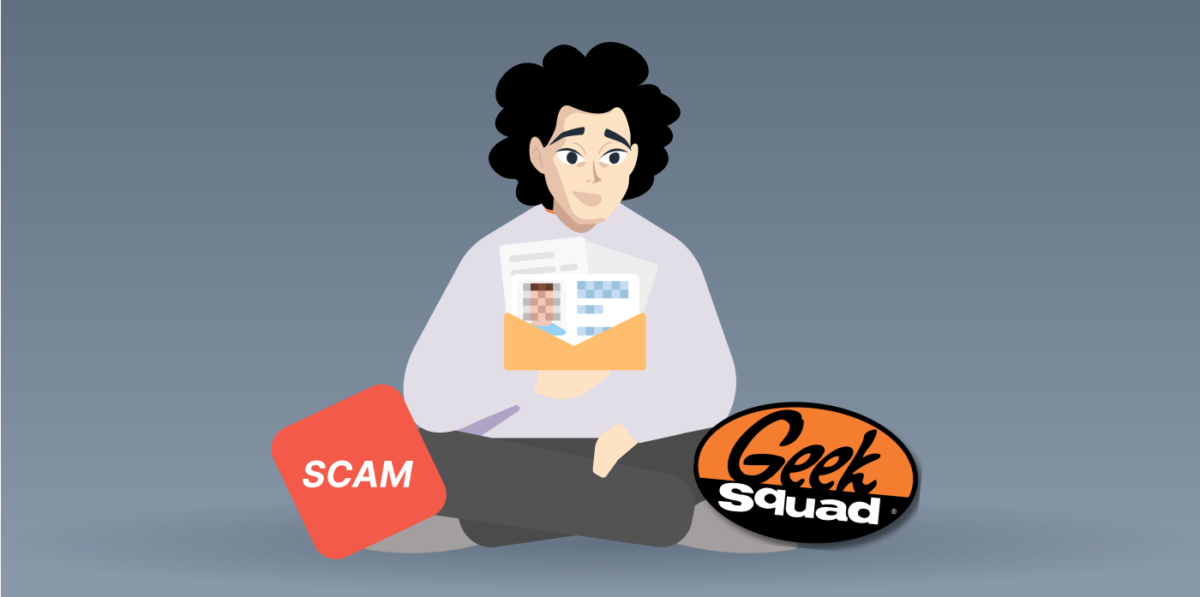
Geek Squad is a trusted website and a subsidiary of Best Buy Electronics Corporation. It offers repair and troubleshooting services for tech, computers, appliances, and other electronic devices to customers who buy from Best Buy. However, cybercriminals have been using this name to carry out phishing activities and steal money from people.
If you aren’t aware of this scam, don’t worry as this guide is going to explain everything about a Geek Squad Scam. Learn what it is, how to identify it, and how to stay protected from this threat.
The Geek Squad Email Scam
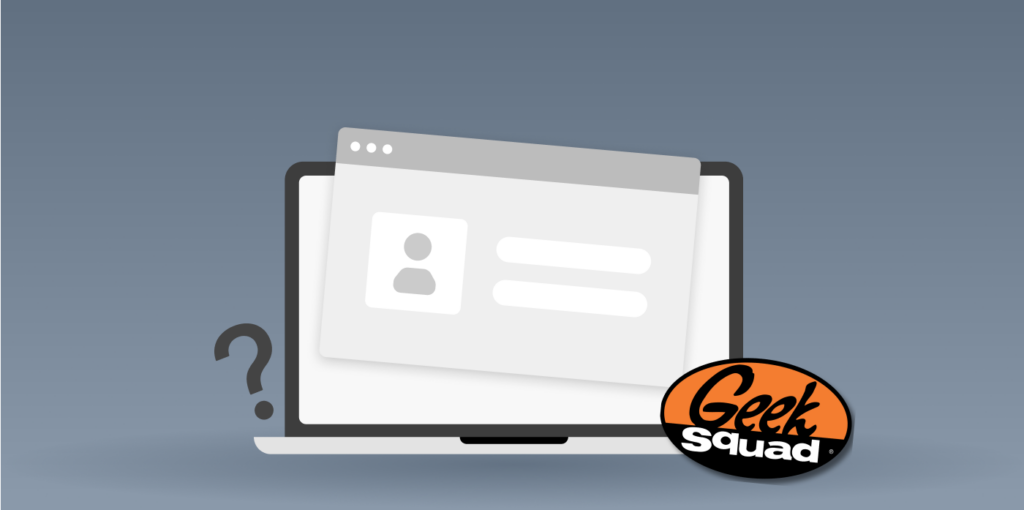
The Geek Squad scam is a phishing tactic used by cybercriminals pretending to be Geek Squad customer support agents. The frauds send you messages containing malicious links or urge you to change your passwords. Sometimes, they trick you into paying your invoices to dubious accounts.
These emails are so convincing that even reasonable people can overlook the red flags and fall into the scam. Why so? Because the scammers use dates, billing information, fake invoice numbers, and other important details to create emails that look genuine.
But, all this information is fake and is only to trick unsuspecting customers. They do it to lure you into interacting with their malicious codes, links, and malware. Or, they lead you into social engineering tactics that can con you out of your money.
How the Geek Squad Scams Work
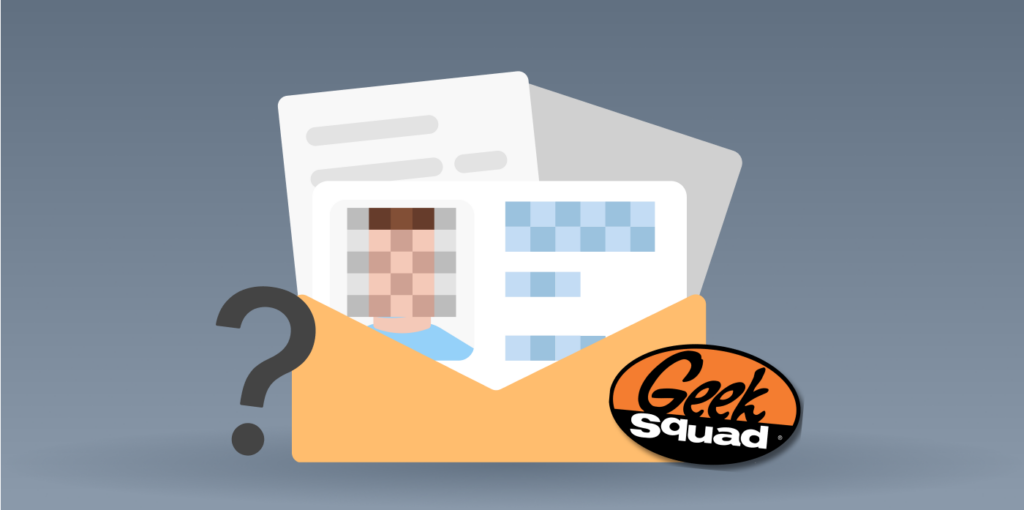
These scams can take many forms. Let’s talk about each of them in detail:
Password Reset Scam
In this scam, criminals normally insist on obtaining the password for your Best Buy account. They could trick you into changing your login details as a safety measure to safeguard your account due to suspicious activity.
If you follow the reset link, you’ll be taken to a fake website page that requires you to enter your original password and other login details. This will automatically give the hacker or your loading data, and they can obtain other information from your account.
Fake Antivirus Software Scam
The scammers may also send you emails about impending or existing infections. Sometimes, they tell you that other customers have experienced malware you must remove from your system. They claim they would help keep your devices safe if you downloaded their free anti-malware software.
Following the link they send, you will automatically download the malware that infects your device. They automatically gain access to your device, where they target stealing your personal data, especially your bank account information.
Automatic Renewal Scam
Here, the scammers send you a fake email warning you about the consequences of not renewing your Best Buy subscription membership. Even when you don’t have a subscription, the hackers hope you will fear the consequences and get you to sign up for one.
Sometimes, they even scare you that you face a hefty penalty if you refuse to renew your subscription. Thus, they bring up canceling your subscription by clicking the provided link. Their links lead you to a web page like the Best Buy website.
There, they insist that you key in your credit card details, social security numbers, and other sensitive information with the promise of ending the subscription. Unknown to the victims, the hackers will use this subscription email to steal your identity and money.
Fake Billing
Sometimes, scammers pretend to be the Geek Squad payment confirmation service agents. They put another on the invoice email to make you believe that you can call to dispute any charges. Many people will quickly make the call because they feel they’ve never subscribed to any services.
Then, when you call the number, an imposter mimicking the Geek Squad team will walk you through the billing resolution. But, unknown to you, you’ll be giving up your sensitive information or downloading malware that hands over your computer to a remote hacker. With your computer in their hands, the hackers can do anything from injecting malware to stealing your data.
Phishing Emails
Cybercriminals are also notorious for sending replicas of Geek Squad scam emails containing links or attachments that contain dangerous malware. And, if you fall into the trick and try clicking on these attachments, you eventually give the hackers access to your device.
Invoice Fraud
The Geek Squad invoice scam is a sophisticated fraud that lures users to pay for fake services into fake accounts. They provide legitimate invoices but need you to pay for personal accounts.
Most scammers use modern methods to collect this invoice. Traditional phishing has sat back, and hackers use social engineering these days.
Most attackers also hijack an employee’s account and try to access email banking from mission transactions in places and plans or services. Then, they use this information to contact vendors and fake invoices expecting new payments.
Spotting a Fake Geek Squad Email
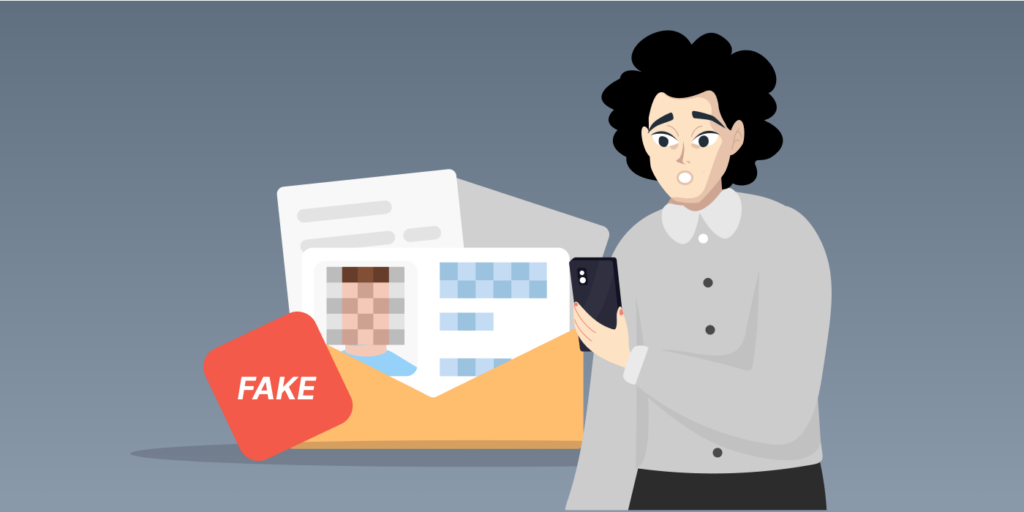
You can tell that an email is from a Geek Squad scammer by spotting various red flags. Start doubting the authenticity of the emails if you notice any of these signs:
Typos and Grammatical Mistakes
Most official messages from major companies such as the Geek Squad or Best Buy do not contain any grammatical or spelling errors. These companies will make no mistake when they require you to make serious changes to your account, such as email or password resets.
Fabricated Urgency
Scammers prey on your innocence. They know that you might start scrutinizing the content of the email and figure out they are thieves, so they create a sense of urgency to make you do things hurriedly. They hope you will not think they are hacking you if you rush into making decisions.
For example, they might scare you with the idea that you could receive a hefty penalty or renewal fee, and then they will add you to take action immediately. This makes you bypass your rational thinking that could figure them out.
Dubious Geek Squad Email Addresses
Sometimes, the sender’s email is weird and contains random letters, numbers, and characters. So, look closely at the sender’s email and check whether it uses the Geek Squad domain name. If it has random numbers, this could be a red flag that it’s from a scammer. It’s important, though, that some Geek Squad scammers will have legitimate email addresses that will easily fool victims.
How the Email Addresses You
Most scammers will send out their emails to random users in large volumes. So, instead of targeting specific individuals, they will use generic emails. For instance, they will address you as “Dear Sir or Madam” without specifying your real name.
Remember, most Geek Squad and BestBuy emails address you by name, as they have your personal information. While this doesn’t mean that every email you address as “Dear Sir/Madam” is from a fraudster, it’s one of the red flags you should consider.
Suspicious Links and Attachments
Most phishing tactics employee emails with infected links or attachments. If you click those links, they will need malicious websites or automatically download malware. So, any suspicious link is another bad sign to consider. Do not click on anything that you do not trust. Fortunately, most antivirus software has anti-phishing protection features that scan your messages.
Emails with Public Domains
Established businesses normally use business domains in their emails. But ordinary hackers will directly send you emails from public domains such as @gmail, @Yahoo, @outlook, @rocketmail, and others. If you ever receive an email claiming to be from Geek Squad with no BestBuy or GeekSquad in its email domain, treat it as a potential scam.
Currencies Don’t Correspond
If the currency you used on Best Buy does not match the one the email wants you to use, consider it as a caution. Always check if the currency of your transactions matches the one you use for your Geek Squad orders.
How to Avoid Fake Geek Squad Emails
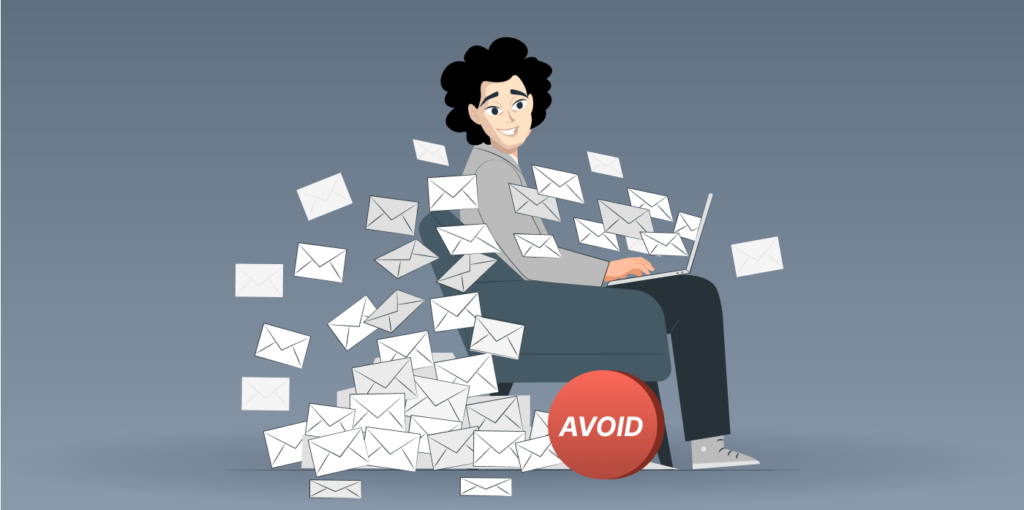
Now that you know how to tell which email is trying to scam you, you should be halfway ready to beat the Geek Squad scammers at their game. The other half is knowing how to totally avoid online fraudsters. Here are measures to lower your risks of falling for the Geek Squad fraud.
Never Touch on Anything Suspicious
Avoid any suspicious links or attachments. If you are not expecting an email with a link or attachment, just don’t click on any URL in your inbox. You don’t want to click on attachments and links, especially when resetting your password. Most of these links contain malicious code that can lead you to download malware and probably even give hackers authorized remote access to your device.
Beware of Phishing Emails
Most phishing emails have signs which can indicate the intention behind the sender. You must remember all the points that help you identify a scam email. Whenever you look at a new email in your inbox, you should try to find out and spot the red flags. Once you know these indicators, you can spot any scam, not just the Geek Squad hackers.
Verify the Identity of Email Senders
Do you know who is sending you the email you are about to open? Always counter-check all the contact details of the person who emails or messages you. If you receive an email or a call, first verify the identity of the phone number or email address.
One of the smartest ways is to search it out on the internet. If the email or Geek Squad phone number is directly associated with the company you are dealing with, then it’s okay. However, if the email or phone number that contacted you does not appear anywhere in the company database, cut off communication.
Don’t Give Out Your Login Details
No legitimate company will ask you for your two-factor authentication code, emails, or sensitive login information. If you realize someone is putting pressure on you to give them your login details, take it as a huge warning sign. Always keep your 2FA codes and login passwords private.
Do Not Respond to Unknown Calls or Messages
The first step to staying away from any online scammer is to not respond to their unsolicited phone calls, messages, or emails. The moment you respond to a scammer, you’ve already fallen into their trap.
Most hackers are masters of social engineering, and they will put psychological pressure on you until you give up your money or personal information. These fraudsters have emails that contain sophisticated tracking pixels and algorithms. These small bits of information will help the hacker who sends the email to know how you engage with the content. And they can, therefore, target you again in the future. So, if you find an email that looks like a scam, just don’t open it.
Block Scammers
If you notice someone spamming you with suspicious emails, block them. Blocking the sender limits their ability to scam you, and you eliminate any thieves or scammers from your inbox.
Keep Your Apps and Software Updated
Most software updates patch security features, so updating your software ensures you always have the latest antimalware security features. The latest safety patches keep your device secure from any vulnerabilities hackers can use to access.
Install Antivirus Software
Even the most careful internet users can become victims of hacking if their devices are infected with viruses and other malicious malware. An antivirus program will scan to identify threats and block any adware, viruses, and other malware before it’s installed. Even when it’s too late, and the malware is already on your device, the antivirus will help you identify and delete the malicious program from your device.
Use a VPN
A Virtual Private Network (VPN) will keep hackers away by encrypting your traffic and hiding your IP address. Some also come with antimalware functionalities, which will eliminate phishing and email scam threats. ExtremeVPN offers top security with military-grade encryption and a lightning-fast connection.
What to Do if You are a Victim of a Geek Squad Email Scam
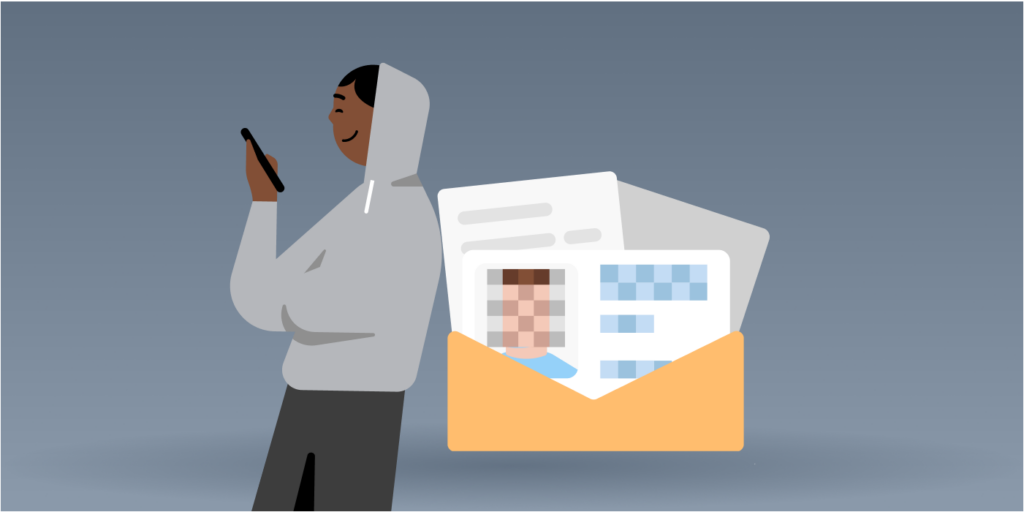
You’ve already seen how to spot a malicious Geek Squad scammer’s email. But just because you know how they could trick you doesn’t mean they will not succeed. The information helps equip you with enough information to make the right decision.
However, scammers may still find their way to you and defraud you. So, what exactly should you do when you are the victim of this scam?
Change the Password
The first thing you should do is change your account login details. If your BestBuy account’s passwords and emails are in the hands of these scammers, you should reset the password. Also, block unauthorized access to your accounts by enabling the 2-factor Authentication (2FA) features.
Report the Incident to Best Buy or Geek Squad
Promptly alert the company involved that you’ve been a victim. Their support team will do everything possible to restore your account and prevent further damage or losses. Also, the company will use your case to alert other customers and prevent similar attacks in the future.
Scan Your Computer for Malware
If you clicked the links or opened the attachments on the scammer’s email, you may have infected your device with malware. Use reliable antivirus software to scan your device and remove malware and other malicious software.
Check Other Accounts
If you have registered other accounts with the affected email address, you should check them for suspicious activity. Most accounts associated with the email in question are also at risk of falling into the hands of the hacker. So, you must also change their passwords and secure your password manager.
Beware of Identity Theft
Hackers perpetrate phishing attacks to steal your identity and maybe even your bank and credit card info. The fraudsters will pretend to be you and apply for loans or siphon your money without your notice.
So, beware of any identity theft. Check if your cards and financial transactions are okay. Also, add a security layer for your accounts by enabling the 2FA, new strong passwords, and unguessable security questions.
Inform Your Friends and Contacts
Scammers can impersonate you to the extent of messaging your contacts and obtaining money or spreading the net of phishing attacks. So, informing these contacts that you’ve been attacked will not only maintain your reputation but also keep them safe.
How and to Whom Do I Report a Geek Squad Scams?
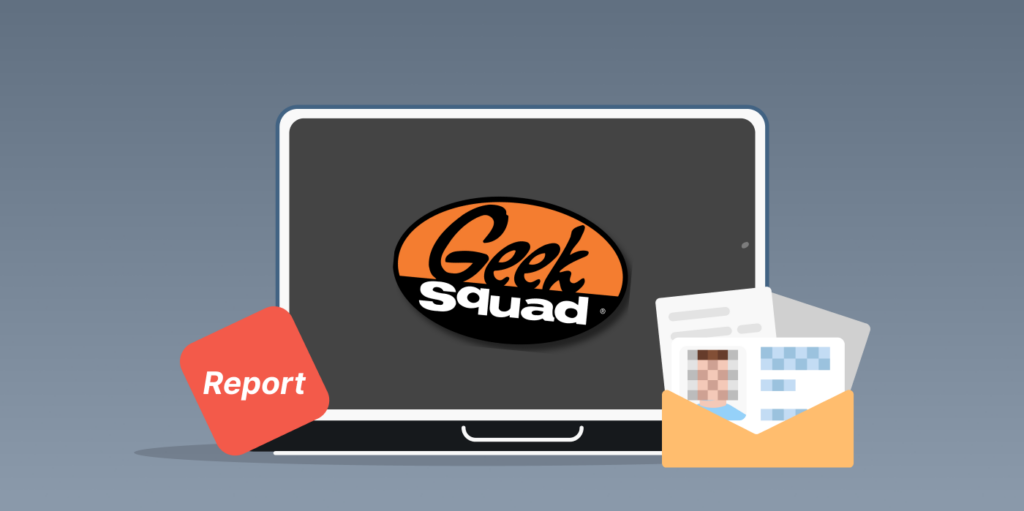
After you become a victim of cybercrimes, you’ll possibly be burning with fury and desire for justice. While getting hold of the criminal is a long way due to their incognito operations, all is not lost! Reporting these scams will prevent future frauds.
Your Email Provider
Start by reporting to your primary email provider. Mark the email as spam or find the option marked ‘Report Spam’ or ‘Report Phishing,’ depending on the provider. The email service provider will use your report to mark similar emails as spam or even block the sender’s account altogether.
The Geek Squad Customer Agents
Forward the complaint to the genuine BestBuy or Geek Squad service operators. They will assess the phishing email and take action regarding the attempt. For instance, they will implement measures to make their service safer from fraudsters. Again, they may notify other customers so they don’t fall victim to similar frauds.
Inform Law Enfocement
Seek advice from an attorney or the police on how to press charges. The anti-cybercrime police units will dig deep into the matter and launch investigations. They could reach a satisfactory point where they build a strong case to lodge a trial.
